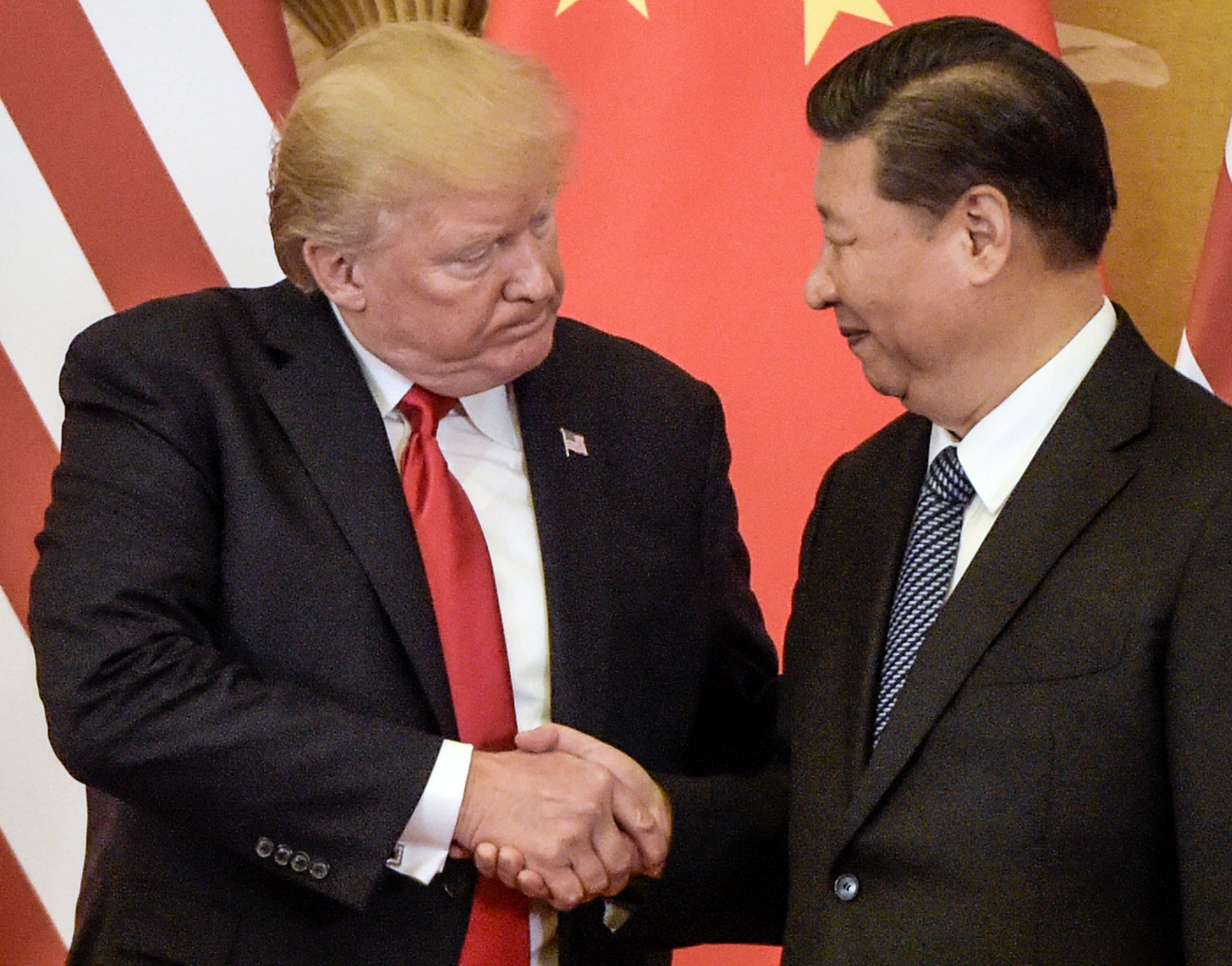After many ups and downs in the past year, the US-China relationship remains mired in uncertainty. Despite two summits last year, including an unprecedented "state visit-plus" reception by Chinese President Xi Jinping for US President Donald Trump in November, and nine phone calls between them, ties between Washington and Beijing are still volatile and unpredictable.
At times, it has seemed like the American and Chinese leaders have a good rapport and are working together towards common ends. When Mr Trump was in Beijing, he touted his "great chemistry" with Mr Xi, and told the media that instead of blaming China for the imbalanced bilateral trade relationship, he gave China "great credit" for effectively taking advantage of another country for the benefit of its citizens. Mr Trump has also tweeted that their conversations on both trade and North Korea were "very productive". Chinese media reported that both leaders hailed the great progress achieved in the bilateral relationship and agreed to further enhance cooperation.
Yet, by all accounts, the Trump administration is preparing to impose harsh trade penalties on China. The US Commerce Department is set to deliver findings this week on a probe into intellectual property theft and cyber espionage.
Retaliatory options being considered include new limits on Chinese investment in the United States or the raising of tariffs.
A separate Commerce Department inquiry is assessing the national security impact of current volumes of Chinese steel and aluminium shipments. Following findings by the US International Trade Commission that imported solar equipment and washing machines have caused "serious injury" to American manufacturers, Mr Trump is mulling over options, including implementing tariffs, minimum prices or quotas.
In some respects, US trade actions against China should be unsurprising; during the presidential campaign, Mr Trump constantly berated China for its predatory trade practices.
Since becoming president, trade penalties against China have been delayed, by Mr Trump's own admission, due to Chinese cooperation in pressuring North Korea to give up its nuclear weapons. "I have been soft on China because the only thing more important to me than trade is war," he told The New York Times in an interview last month. "If they're helping me with North Korea, I can look at trade a little bit differently, at least for a period of time."
His patience with China, however, appears to be running out.
Although Beijing has supported United Nations Security Council resolutions that ban imports of North Korean coal, iron ore, lead, seafood and other goods, it has resisted US pressure to reduce Chinese supplies of crude oil, fearing that doing so would result in instability and chaos that could result in the collapse of Mr Kim Jong Un's regime.

In the latest UN resolution adopted unanimously on Dec 22, China agreed only to cap crude oil supplies to North Korea at four million barrels a year and further reduce such supplies if Pyongyang conducts another nuclear test or launches another intercontinental ballistic missile.
Furthermore, there are ongoing concerns about Chinese sanction violations. For example, US officials have indicated they have evidence that Chinese-owned vessels are illicitly transferring oil to North Korean ships at sea.
US domestic politics will also push Mr Trump to take punitive trade measures against China. In November, the US will hold mid-term elections and in the run-up to the polls, he will be under pressure to deliver on his campaign promise to get tough with China on trade. If the Trump administration proceeds with trade sanctions against China, Beijing will almost certainly retaliate.
Mr Xi, who emerged from the 19th Party Congress in a strong position, will not make unilateral concessions because doing so would make him vulnerable to criticism and potentially undermine his ability to advance his agenda of strengthening the Communist Party and making China into a great, modern socialist country by the mid-century.
China will likely buy fewer Boeing-made planes, and less cotton, soya beans, wheat and other agricultural products from US farms. There is a significant risk that a trade war would ensue with negative implications for the world trading system.
Since the Trump administration has narrowed the US-China agenda to little more than trade and North Korea, a major setback in the bilateral relationship could not be offset by cooperation in other areas.
On June 1 last year, the US ended its participation in the 2015 Paris Agreement on climate change mitigation, which had been a focus of US-China cooperation under the Barack Obama administration. US-China collaboration on such issues as air quality, energy conservation, energy efficiency, nature reserves and ocean protection has been accorded lower priority.
Moreover, the recently released National Security Strategy has laid bare the increasingly adversarial relationship between Beijing and Washington. The document labelled China a "competitor" in political, economic and military spheres, and maintained China is a "revisionist power" that is seeking to shape a world antithetical to American values and interests.
What starts as a trade war could quickly devolve into full-blown strategic competition, with dire implications for the management of many issues regionally and globally, including the East and South China seas, Taiwan and the Korean peninsula, among others.
The US-China relationship is the most critical and consequential relationship of the modern era. An antagonistic US-China rivalry in the 21st century would be far more severe than the Cold War between the US and the USSR of the last century. And a hot war is too horrific to contemplate.
US complaints about the imbalances and lack of reciprocity in the US-China trade and economic relationship are legitimate and should be addressed. But a trade war that could alter the global geopolitical landscape to the detriment of much of the world must be averted.
• The writer is a senior adviser for Asia and director of the China Power Project at the Centre for Strategic and International Studies in Washington
